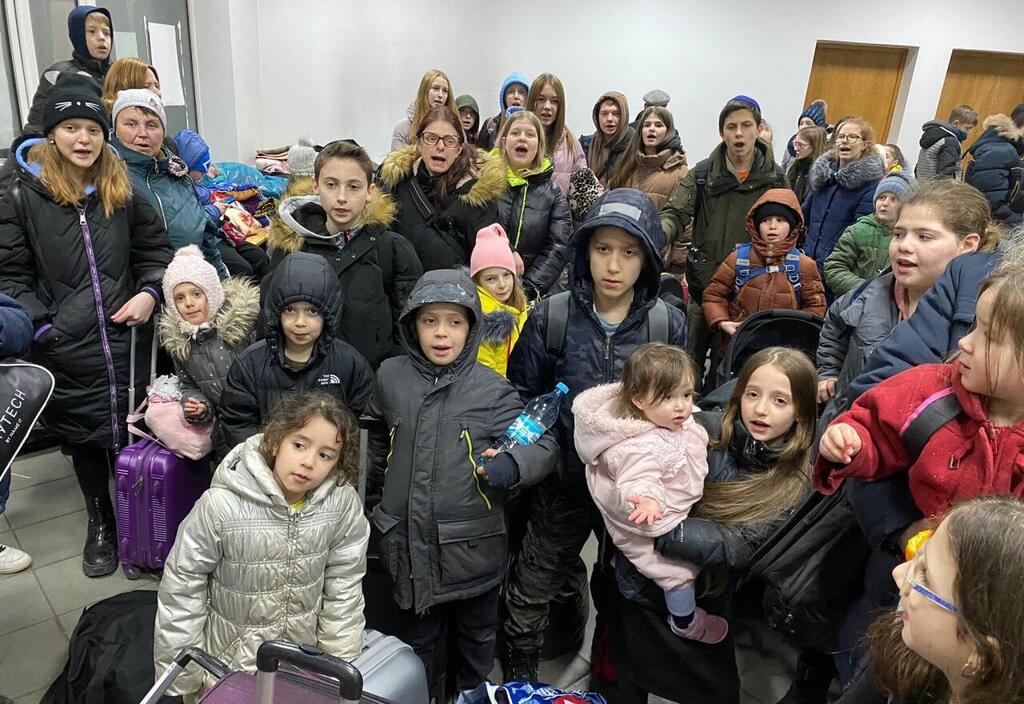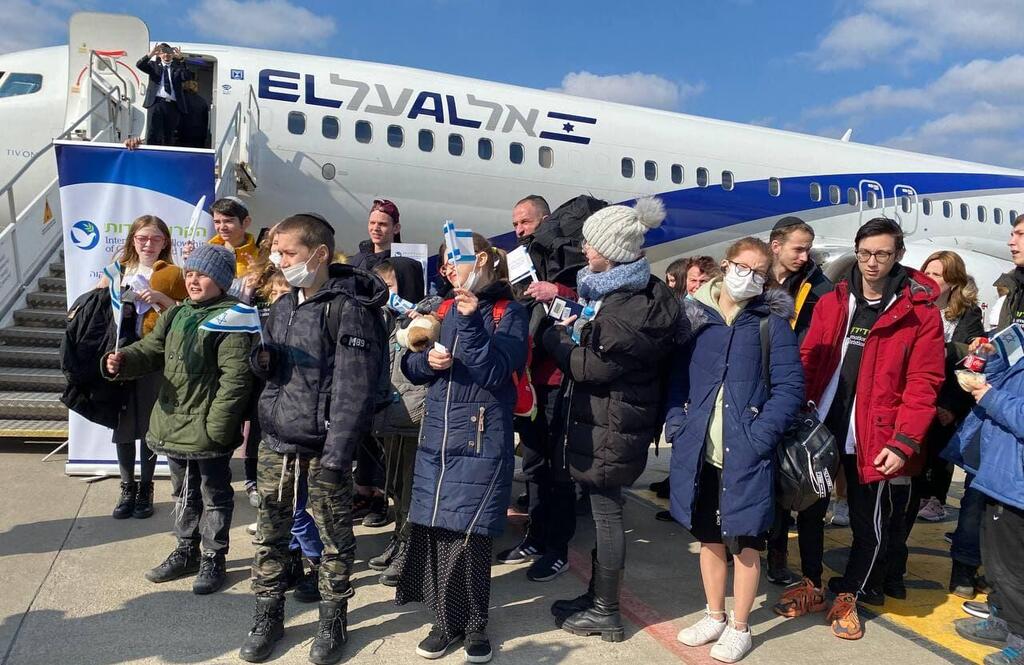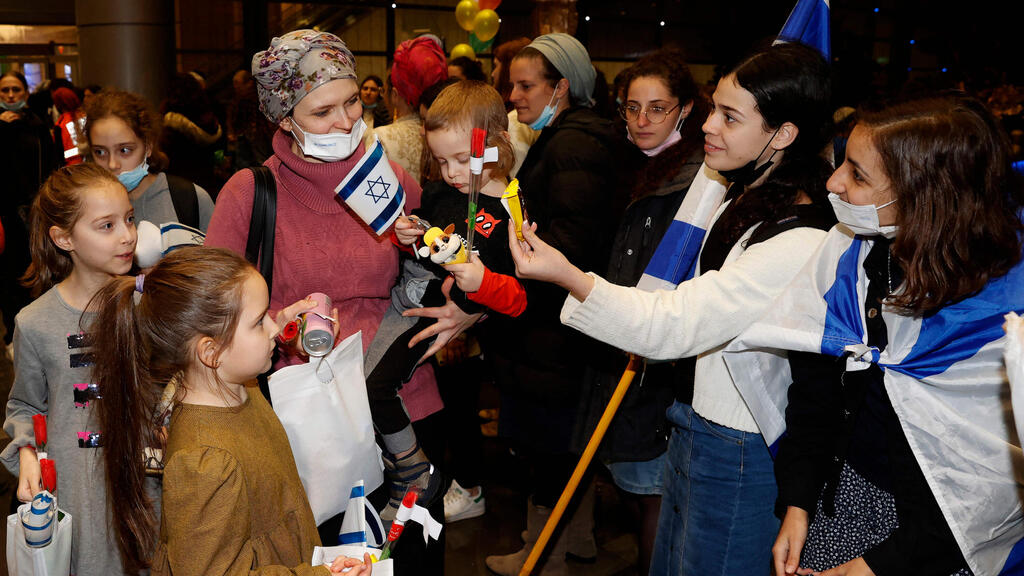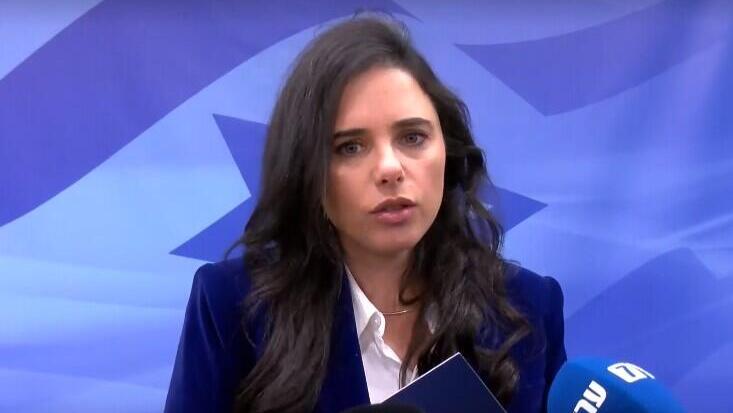Israel will reevaluate its resettlement policy of refugees fleeing fighting in Ukraine as the country faces a massive influx of asylum seekers, Interior Minister Ayelet Shaked said on Sunday.
Shaked will meet later on Sunday with Foreign Minister Yair Lapid to draw up a "more balanced" policy on the issue, according to her, given that 90% of the refugees arriving in Israel are not eligible to immigrate according to Israel's Law of Return, which gives Jews, their children and grandchildren the right to relocate to Israel and acquire Israeli citizenship.
This apparent shift in policy comes despite harsh criticism voiced by Ukraine's Ambassador to Israel Yevgen Kornichuk last week, who said Kyiv was "disappointed in the Israeli government for not allowing entrance to the war refugees."
Under the current policy, first-degree relatives of Israeli citizens who aren't eligible to relocate under the Law of Return will only be allowed to enter Israel under a 90-day tourist visa, contingent upon their Israeli host's signature and their commitment to return to Ukraine at the end of the approved period of stay.
Ukrainians that do not fall under this category will be questioned by border control upon arrival in order to ensure they have family in Israel. The refugee's host family will be asked to guarantee their departure from Israel, and put down a NIS 10,000 deposit per person to avoid overstaying.
Shaked said she believes that under the current policy, Israel had taken in more refugees than any other Western country that doesn't share a border with Ukraine, stating that 2,034 Ukrainian nationals have already entered the country's borders since fighting began late February.
"In the first days of the war, we took in only a few dozen, but if we look at data from the last 3 days, we can see that 351 entered on Wednesday, 521 on Thursday, and 605 Ukrainians entered Israel over the weekend."
The minister said that Israel was on course to take in more than 15,000 Ukrainian nationals by the end of March, 90% of whom aren't eligible under the Law of Return.
"Every reasonable person understands that we can't keep up at such a pace, that's why I intend on creating a more balanced policy," she said.
Shaked also rejected criticism leveled at Israel for the country's alleged mistreatment of refugees.
"Israel, as opposed to what's reported by the media, has a broader policy than almost every Western country that can't be accessed from Ukraine overland," she said.
"Israel is most likely the country that took in the most Ukrainians per capita compared to any other Western country that doesn't share a border with Ukraine. There is no other country in the world without a visa waiver that allows such a broad policy like Israel does. We're already dealing with 26,000 Ukrainian nationals that live in Israel, most of whom illegally."
Shaked added that Israel was preparing to receive over 100,000 Jewish immigrants and their families from Russia and Ukraine and the consequent housing and employment challenges that may arise as a result.
4 View gallery


Jewish Ukrainian orphans who are set to relocate to Israel after crossing the Romanian border
(Photo: Israeli Embassy in Romania)
Aliyah Minister Pnina Tamano-Shata said that Israel was working to provide optimal conditions to Jewish refugees and others eligible to relocate to Israel under the Law of Return.
Meanwhile, Diaspora Minister Nachman Shai urged Prime Minister Naftali Bennett to scrap the NIS 10,000 deposit requirement for arrivals from Ukraine, calling it "inhumane and immoral."




